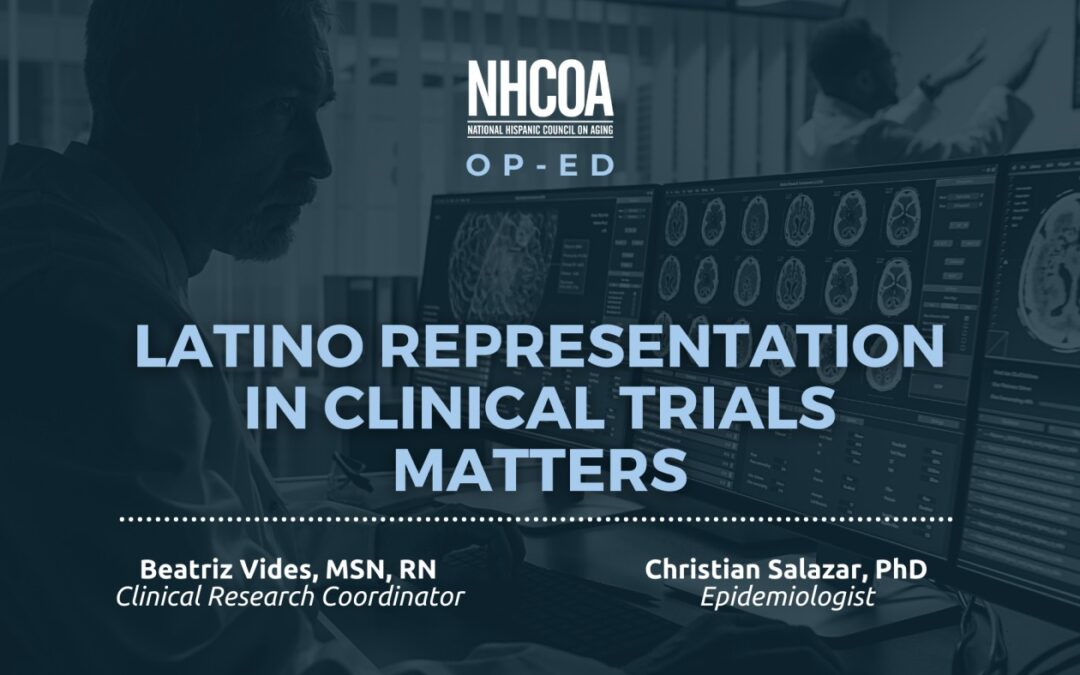By: Beatriz Vides, MSN, RN, Clinical Research Nurse and Clinical Research Coordinator, and Christian Salazar, PhD, Epidemiologist, University of California, Irvine.
Alzheimer’s disease is deeply personal. Its insidious onset strikes fear among those aware of its dire trajectory. It’s anguishing for family members and friends who fight desperately to keep their loved ones well. It’s intensely frustrating for researchers like us who work against the clock to try to find ways to help those suffering from memory loss, often with minimal success.
Given that the number of Latinos with Alzheimer’s is expected to increase faster than any other racial or ethnic group in the US over the coming years, Alzheimer’s is probably personal for you too if you are Latino. With our shared family experiences battling Alzheimer’s, however, we are united with one voice and on a mission to better understand how this disease affects our Latino community, and to change its course.
Although we know that Latinos are more likely to develop Alzheimer’s than non-Hispanic White individuals, we know surprisingly little as to why. A challenge our research team faces every day is trying to learn more about how the brain ages in our Latino community, which is made more difficult by the lack of Latino representation in clinical research. Currently, Latinos make up fewer than 5% of participants in clinical trials. Without enough participation from diverse communities in Alzheimer’s research studies, we will never fully know whether or not new treatments and other interventions work for us. That’s where you come in. Latinos must be included in clinical trials to help advance research into diseases that disproportionately affect us, like Alzheimer’s.
Based on conversations with our racially and ethnically diverse patients, we know people feel more comfortable discussing medical issues with someone who understands their cultural background and can speak their native language. That’s why ensuring clinical trials are diverse not only in participants, but in research staff, is so important. Today, many clinical trials are equipped to enroll Hispanic and Latino participants who are mono- and bilingual in Spanish, like the AHEAD Study.
The AHEAD Study tests whether intervening ahead of symptoms may prevent future memory loss and dementia. The AHEAD Study needs participants who are 55 and older who want to be a part of finding solutions for Alzheimer’s disease. The AHEAD Study is actively and deliberately seeking diverse participants, particularly from the Latino community. There are 14 AHEAD Study sites across the country that can conduct the entire study in Spanish, and 60 more that accept bilingual Spanish-speakers.
Volunteering in clinical trials like the AHEAD Study can support tremendous advances in what we know about Alzheimer’s, and even one day help find a cure or treatment that could help you, your family, and future generations of Latinos.
For more information and to find a study site near you, please visit www.AHEADStudy.org, or call 1-800-AHEAD-70 (1-800-243-2370).
Each one of us has a role to play in improving the health of our community and reducing the impact of Alzheimer’s disease. For us, and for you, this fight feels personal. But together, it’s a fight we can win.


Recent Comments